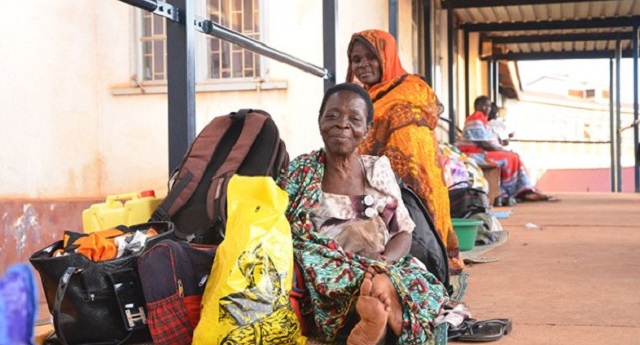
Drug shortages, doctors strike
Kampala, Uganda | FLAVIA NASSAKA | If one item has characterised the health sector in Uganda in most of 2017, it is the lack of medicines and supplies in hospitals. It even became a rallying cry for striking doctors of the Uganda Medical Association (UMA).
At the height of their strike in November, the UMA President, Dr. Obuku Ekwaro, revealed that based on their research, over 65% of hospitals lack drugs and supplies for emergency care. He said the chronic scarcity of medicines was causing unnecessary death.
“But government seems to continue turning a deaf ear,” he said.
The doctors wanted parliament to approve a shs41billion supplementary budget to buy medical supplies such as gloves and simple medicines to allow doctors in public facilities work.
Then on Dec.12, the regional Non-Governmental Organisation; Twaweza release a report pointing out the same issues. Titled ‘Sauti Za Wanachi’ – Voices of Citizens, the survey carried between August and September revealed that 65% of the 2000 respondents sampled said government was managing health services badly. Also, 59% revealed that health was the country’s most pressing challenge. For many, the biggest health challenge of the year has been in the area of HIV.
While results of the Uganda Population HIV Impact Assessment (UPHIA) survey released in October showed a decrease in prevalence from 7.3% in 2011 to 6% now, many of those living with the virus lived in uncertainty of not receiving their doses. By October those who were getting drug re-fills of every two months had now gone back to re-fills per week and for some areas complete stock outs.
At the time, Moses Kamabare, who heads the government owned National Medical Stores (NMS) and is in charge of drug distribution, told The Independent that he had predicted this would happen.
He said it was obvious it was bound to happen the moment the government in 2016 approved the `Test and Treat policy on HIV/AIDS which meant that everyone needed to test and whoever tested positive for the virus had to be initiated on drugs immediately. All this happened without increasing funding. He said the government rushed to adopt the guidelines without planning on how to cater for the increased numbers.
The drug stock outs are leading some patients who depend solely on government supplies to risk developing resistance to first line drugs.
Researchers at the Makerere University John Hopkins joint Research collaboration in October embarked on a study in search for solutions for patients who fail to get their drugs ontime or are exposed to inadequate doses of tablets.
At a science café organised by health journalists network in Uganda, HIV researcher Dr. Flavia Matovu Kiweewa revealed they were embarking on a trial for an injectable ARV to give people living with HIV a range of choices for treatment; especially for those whose tolerance of tablets is low.
Dr. Diana Atwiine, the Permanent Secretary at the Ministry of Health, said the government had funding problems because of other more pressing and urgent issues that they had to handle. She mentions an outbreak of measles in parts of Kampala and Wakiso which she said called for intense outreach and a house- to- house immunisation drive throughout the country.
Atwiine said although the HIV challenge is real, other epidemics like malaria; which has previously ravaged Kampala and northern Uganda, were controlled largely because of distribution of mosquito nets that went on for most of the year.
Atwiine said her ministry had taken lessons from incidents of 2017 which have made healthcare make regular news; especially the drug shortages, strikes by health workers, and bickering in organisations like the National Drug Authority where Executive Director Donna Kusemererwa was being pushed out, the National Medical Stores, and Uganda Cancer Institute saga over highly priced drugs. She said these have given healthcare managers an idea of how to operate in 2018.
She said the government was expecting more money for ARVs and the U.S. government has already provided US$18.7million worth of ARVs to fill the gaps.
She said cancer patients who require radiotherapy will also start getting treatment in January and Mulago National Referral Hospital will re-open by February 28, according to the contracto.
Atwiine said her ministry’s biggest plan for the New Year is to keep people healthy and out of the hospital. She said this approach is based on research showing more and more people falling sick and yet many cannot afford to pay for their own care. According to the Twaweza survey, 51% of those sought treatment from a public facility. She said they are now moving into prevention campaigns such that even if someone is to fall sick they should be able to intervene before costly care is necessary.
However, Obuku says considering the current low healthcare financing, the government should in the next year consider doubling the budget for supplies and improving competition in procurement of medicines instead of the current monopoly of NMS.
 The Independent Uganda: You get the Truth we Pay the Price
The Independent Uganda: You get the Truth we Pay the Price





